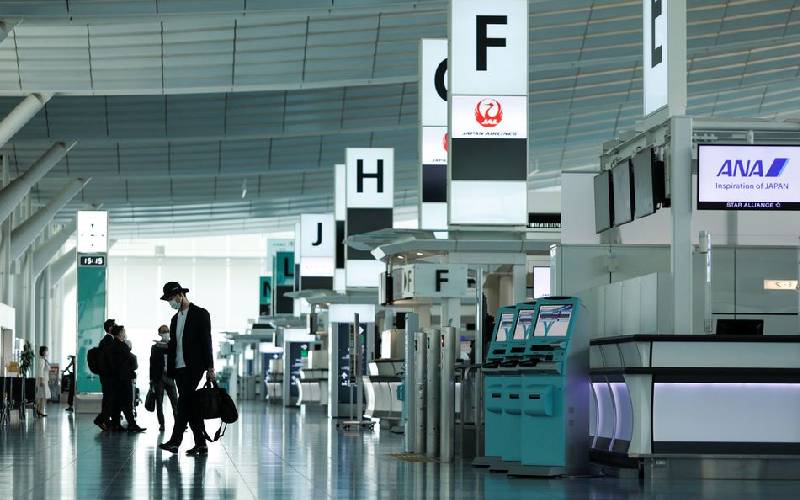×
The Standard e-Paper
Stay Informed, Even Offline

Passengers wearing protective face masks walk at the Haneda airport, in Tokyo Japan June 13, 2021. [Reuters]
Asian and European countries rushed to tighten restrictions on Friday after a new and possibly vaccine-resistant coronavirus variant was detected in South Africa, with Singapore and India announcing stricter border controls and more rigorous testing.